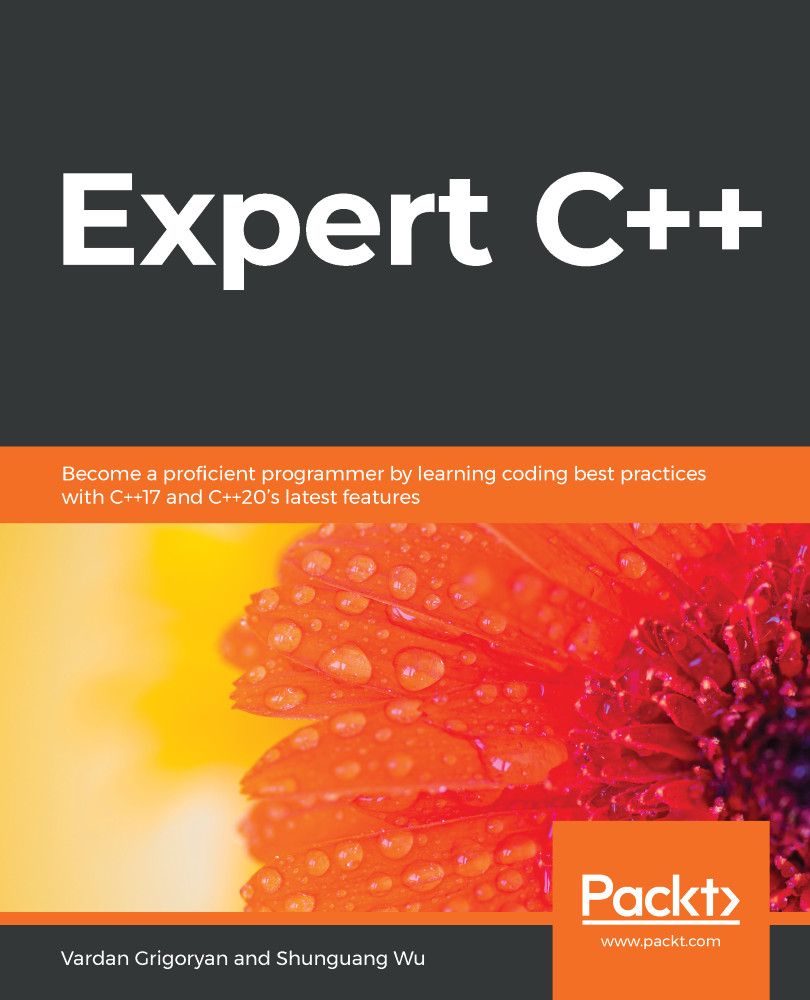Templates are a unique feature of C++ by which functions and classes have the ability to support generic data types – in other words, we can implement a function or class independent of a particular data type; for example, a client may request a max() function to handle different data types. Instead of implementing and maintaining many similar functions by using function overloading, we can just implement one max() and pass the data type as a parameter. Moreover, templates can work together with multiple inheritance and operator overloading to create powerful generic data structures and algorithms in C++ such as the Standard Template Library (STL). Additionally, templates can also be applied to compile-time computation, compile-time and runtime code optimization, and more.
In this chapter, we will learn about the syntax of function...


